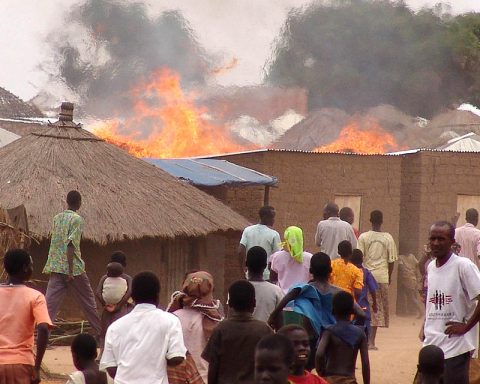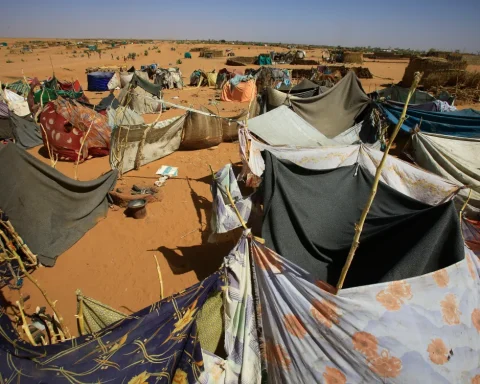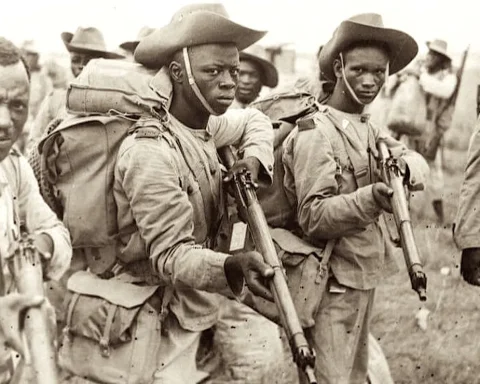Africa is a vast continent with thousands of ethnic groups and subgroups, cultures with varying traditions and spiritualties.
Praying the African way as used in the title of this piece, is not to imply that this one way represents the totality of African spiritual practice, this is just one way out of thousands, it is still African nonetheless.
It is no more news to anyone that there isn’t anything African about Christianity and Islam – Both Abrahamic spawns are relics of colonialism, Western imperial imposition, trans-Atlantic, and Saharan slave invasions.
And, there are millions of Sons and Daughters of Africa scattered all over the globe in many countries of the world, separated perhaps through some generations from the roots of Africa. Africa is more than just a continent. She is a spiritual connection. A son and daughter of the land is always a son and daughter of the land, no matter the distance between him/her from the land.
Any African, black man can pray in the African way – This education is for all, and I hope many Africans outside the shores of Africa adopt this.
Praying the African way is to pray in a way that is consistent with one of the many African spiritual practices.
For this piece, I will be exploring the Igbo Traditional Spirituality known as Odinani. Igbo culture is one of the significant African cultures and is located at what today is the South Eastern side of Nigeria.
One thing that is consistent through African spirituality is that ancestral invocation is vital. The Igbos believe in the intercessory powers of the dead ancestors who watch over the living from the land of the ancestors, and every living person must aspire towards a virtuous life to one day become one of the ancestors in death and continue the protective role for the living.
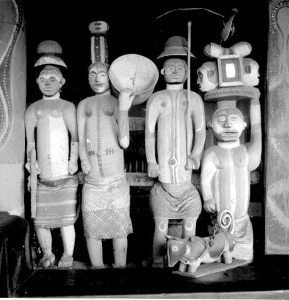
What do I need to Pray?
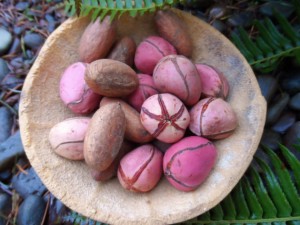
The Kolanut is integral in prayer in Odinani – It is a natural food that also possesses spiritual essence and profound symbolism of Goodwill, life, prosperity, good health, and peace. So, it is important that you have a kola nut with you before you start your prayers.
It is, however, important that you note, there is only one type of kola nut that is acceptable in Odinani prayer – The reddish-purple native kola that is indigenous to Sub-Saharan Africa. The white kola is foreign and hence not recognize.
However, in the event that there is no kola present, bitter kola, water is a great substitute with close spiritual significance and symbolism. Wine (Palmwine) in the absence of which a dry gin can be used.

Who leads the prayers?
The eldest male within the midst of people who wants to pray is spiritually obligated to lead the prayer and break the kola; however, he can give this privilege to any younger person at his discretion.
Why should I pray?
In African spirituality, there is a constant balance and mutual respect between man and nature, there is a mutual relationship between the living and the dead. You pray to:
· Thank the God(s)
· Respect, the ancestors, long gone
· Invoke the spiritual essence of natural balance
· For protection
· Edification
· Celebration
· Unification with the essence of the earth herself.
· For the Goodwill of all men

How do I pray?
You start by:
Invocation of The God(s) and the ancestors to come and partake in the kola as presented.
The invocation of The Sky and the Earth to partake and bear witness to the prayer.
The supplicant must remind the God(s) to uphold the principle of ‘The eagle, and the kite is allowed to share a branch, only the one who insists the other should not lose its wings’
The rest of the prayers bears the petition of the supplicant(s)
It is, however, crucial to understand that this prayer must never be antagonistic. There are no petitions for those that do not like you to be punished or killed. No petitions against your fellow man. You are praying for Goodwill, which you must, in turn, hold for every man.
One of the most fundamental points in the prayer is the principle of “The eagle and the kite should coexist without any refusing the other peaceful existence.”
This summarizes the egalitarian approach towards spiritual petition in Odinani. The eagle represents a high status of power or social position in the hierarchy, and the kite represents a humble position – Our prayer insists that both are allowed to exist peacefully, any who infringes on the rights of others will incur the wrath of the Gods.
So, in order to pray, you must be sure your heart bears no hate or ill will against another person.
In your petition, you must maintain this principle of egalitarian existence across every social stratum.
After your prayer, a small bit of the kola nut or drink must be thrown to the ground as a symbolic gesture or sacrifice that the Gods and ancestors are partaking in your celebration.
After that, you may go ahead and eat or drink any kola, water, or wine present.
When do I pray?
– After you wake up before the day’s activities begin. You must speak to your personal God, the God(s), and the ancestors for their guidance and protection.
– When there is a visitor in your home before any entertainment is consumed
– Before a celebration, no matter how little. Something as seemingly trivial as a safe journey is celebrated through the breaking of kola and prayer.
This article is just a tip in the wholesome iceberg that is African spirituality. The activities presented in this work are just the primary and necessary aspect of prayer that I find are easiest to adopt by those who are not familiar with African spirituality for any reason whatsoever – Maybe through the clouding shrouds of Abrahamic religions or distance.
Practice this spirituality. Rid yourself of malice and hatred for your fellow human, understand that you should also be in constant harmony with the natural world, the God(s), and your past ancestors – they contribute to your life in one way or another.
Treat those who have come and died before you with respect, adoration the God(s), Goodwill to mankind and reverence to the natural world, you will be surprised how liberating and spiritual balance this will provide you with every day.
We are all part of this world, we owe our lives to our forefathers who walked this earth before us, to carry one in virtue and harmony from where they stopped. We must, at every time, recognize that we are never alone. We go with the love, protection, and Goodwill of those who, before us, have come and gone.


